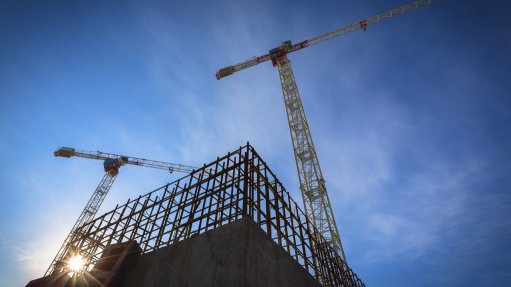
Government’s failure to adequately address the “construction mafia” will have dire consequences not just for the construction sector but for South Africa as a whole, as it is likely to result in the spread of such practices to other sectors of the economy.
This is according to a Global Initiative Against Transnational Organized Crime (GI-TOC) report published this month. The report looks at the organised crime groups that have been targeting construction projects in South Africa for extortion since 2015.
These groups, collectively and colloquially known as the construction mafia, operate under the banner of “radical economic transformation”. They present themselves under the guise of “local business forums” and invade construction sites across the country, demanding money or a stake in development projects.
The report was written by GI-TOC senior analyst Jenni Irish-Quobosheane, who said the activities of the construction mafia have been fuelled by the weak response from government, which has allowed the groups to expand their activities.
She said the government needed to develop a more comprehensive strategy to deal with the problem of systemic corruption, one that included a more proactive response from within the criminal justice sector.
In 2019, at least 183 infrastructure and construction projects worth more that R63-billion had been affected by these disruptions across South Africa. Construction site invasions have continued at this pace since then.
The damage caused by these business forums has not only resulted in delays in the delivery of a number of important infrastructure projects, but also contributed to the demise of a number of businesses.
The report focuses on understanding how the construction mafia operates, its involvement in systemic extortion and the long-term implications for the South African construction industry and the economy as a whole.
The South African construction mafia has its roots in the townships of Umlazi and KwaMashu in KwaZulu-Natal, where the Delangokubona Business Forum and KwaMashu Youth In Action Movement emerged in 2015.
After targeting projects in their respective local townships, the two groups came together to form the Federation for Radical Economic Transformation (FFRET) and widened their scope of influence across the province.
In 2020, the FFRET rebranded itself as the Black Business Federation in an effort to appear more legitimate.
Since 2018, these groups and various emulators started to invade construction sites nationally, demanding as much as 30% of the contract value. The groups are characterised by their willingness and ability to use violence to get their way.
While construction projects are the groups’ main targets, they have also disrupted provincial and local government processes and have even invaded a non-construction company, sparking concerns that the extortion will soon spread to other sectors.
Several of these business forums have clear links to certain politicians and have therefore been accused as acting on behalf of them. There are also links to certain players in the mass transit taxi industry, the report states.
While many companies have acquired interdicts against these forums, they have little to no effect. Other companies have chosen to negotiate with the forums, lending them an unfortunate veneer of credibility and further cementing their role in the construction sector economy.
“A key factor in the success of business forums and their ability to gain a foothold in the sector has been the weak response from the State. This has created a climate of impunity that has allowed the construction mafia to flourish,” Irish-Quobosheane said.
She emphasised that an environment needed to be created that would encourage victims of extortion to feel safe enough to report such crimes.
Moreover, strong partnerships needed to be developed between government, business and communities, with strategies in place to address the issue of the normalisation of extortion within the construction sector.
Irish-Quobosheane added that the State needed to address the issue of members of the construction mafia accessing and using illegal firearms. Additionally, early-warning systems needed to be developed to detect and prevent extortion as soon as it started to arise.
“Dealing with extortion in the construction sector will require responses that address a comprehensive and equitable approach to infrastructure development,” Irish-Quobosheane said.
The full report is available on the GI-TOC website.